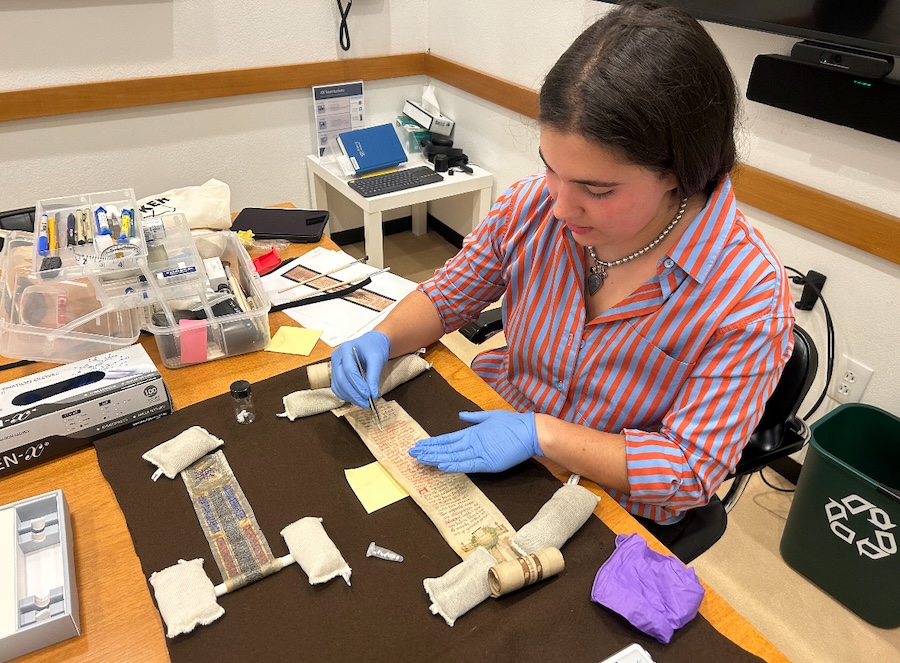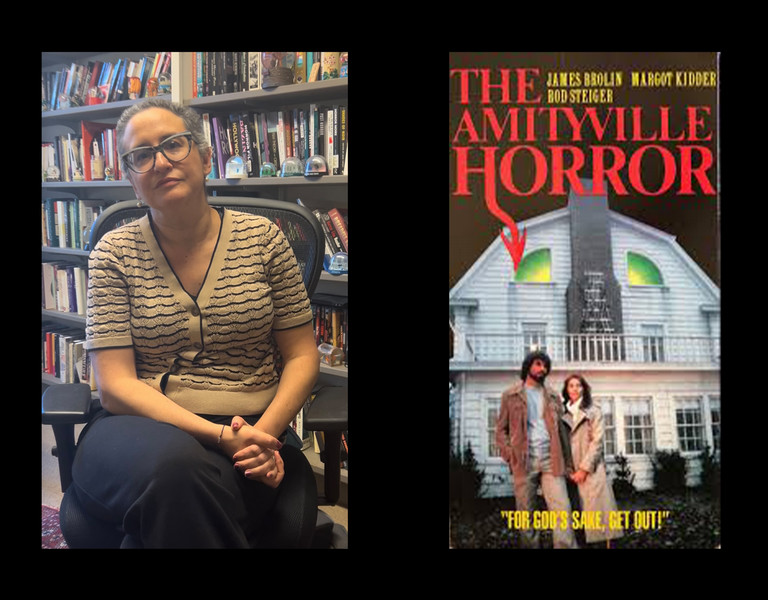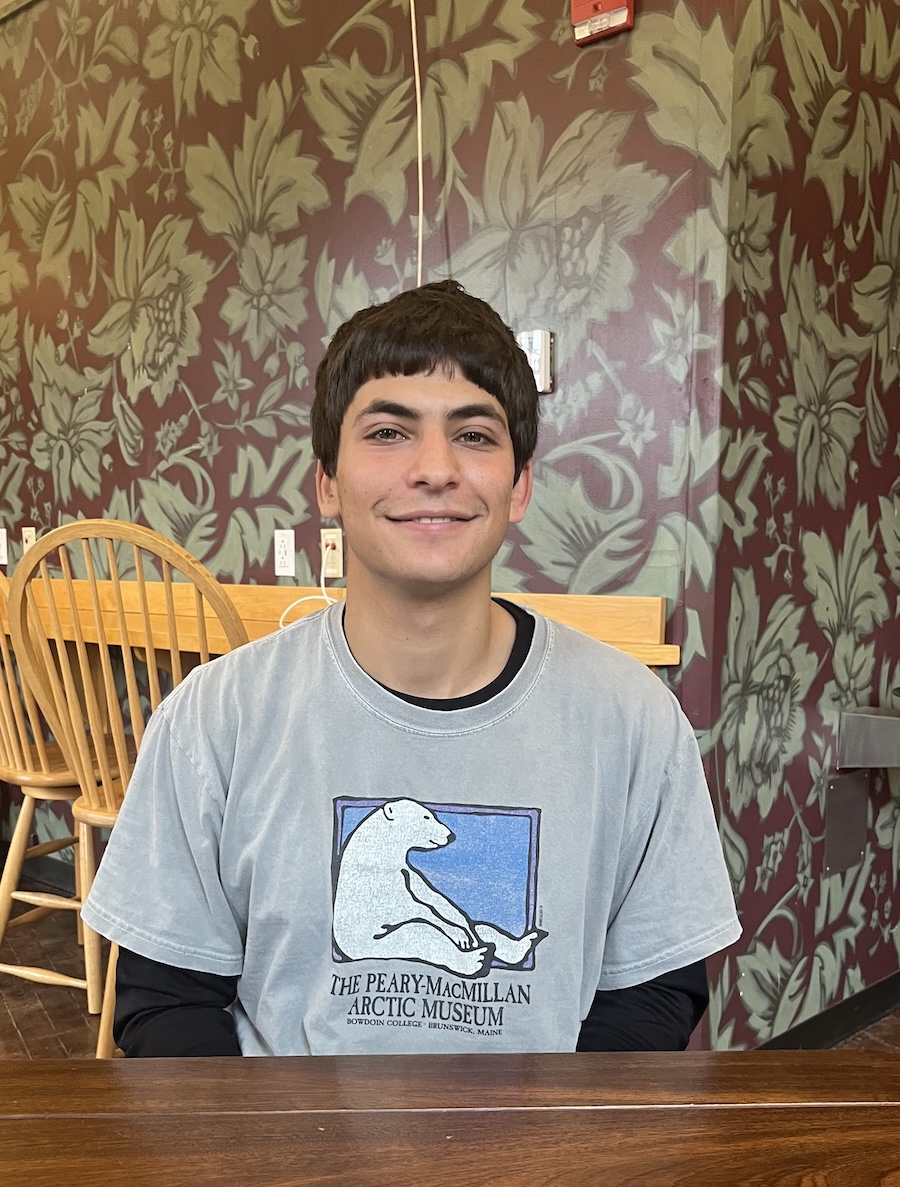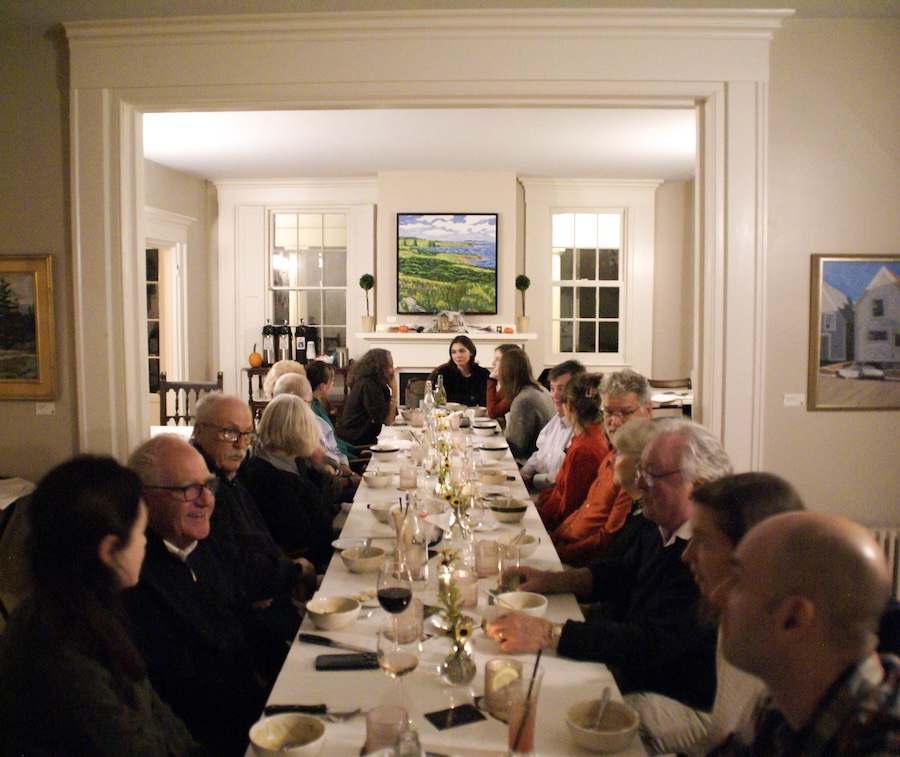Season Two of “Dead Writers” is in the Works
By Lily Echeverria ’26After a successful first season of their podcast exploring the homes of famous dead writers, two Bowdoin professors and their audio producer are ready to continue their journey for a second season.
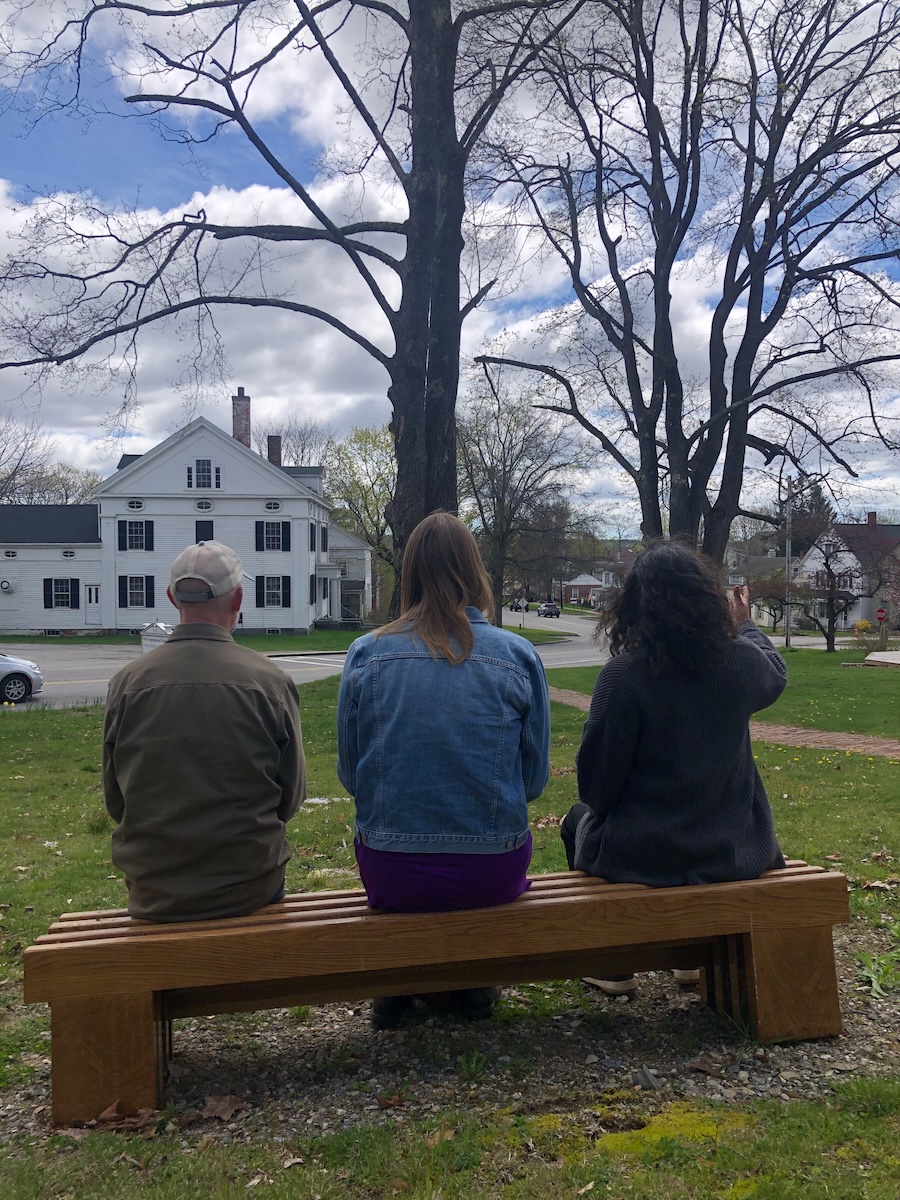
The show’s two hosts—English professors Tess Chakkalakal and Brock Clarke—began working on the Dead Writers podcast in the summer of 2024. They partnered with local audio producer Lisa Bartfai to document their travels through Maine as they traced the legacies of novelists and poets who lived in Maine in the nineteenth and twentieth centuries.
The podcast, which aired on Maine Public, was well received, winning two Signal Podcast awards, the silver in the juried Best Co-Host Team category, and the Listener’s Choice podcast award.
“We had such a good time, the three of us, that we wanted to do a second season,” Chakkalakal said. But their application for a National Endowment for the Humanities grant was denied, meaning they must rely on individuals and corporate donors to help finish season two.
For the new season, they are road-tripping beyond Maine to the rest of New England to report on more authors. They hope to double the number of episodes while keeping the format of each episode consistent.
“Pretty much our shtick, Brock's and mine, is that we go around to the houses, do interviews of the people who work there and the people who visit the houses, and then he and I engage in conversation,” Chakkalakal said.
After trying to script some of the banter and dialogue during the first season, they found their natural conversation to be best for the podcast.
Each episode is dedicated to one writer and includes information about their biographies and some of their works, weaving together literary analysis, jokes, observations, readings, and encounters with people today who are engaging in some way with the long-dead writers.
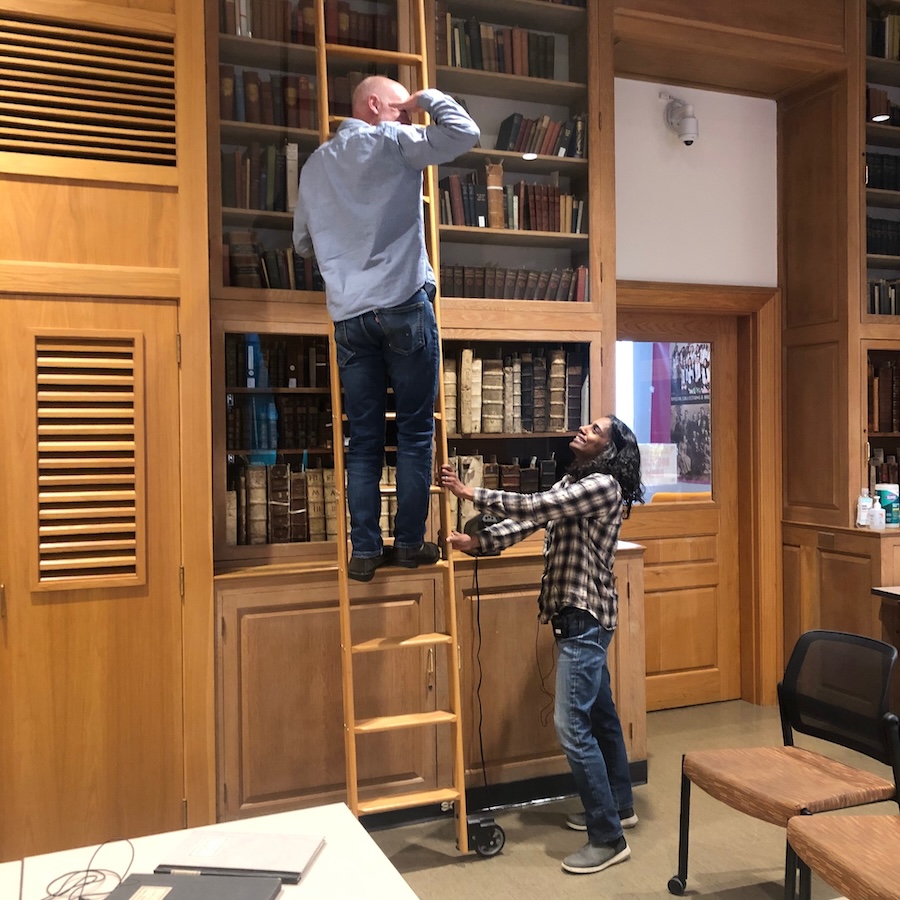
Chakkalakal said the podcast was a departure from her usual activities as a literary academic. “It’s really new territory for us in the English department who are just used to teaching classes and writing books. Now we’re on the road,” she said.
She said she's appreciated the chance to engage with people outside the College, including an innkeeper in Camden who hosts "evenings with Edna St. Vincent Millay" and a town councilor who helped build a bench to mark writer James Weldon Johnson's untimely death in Wiscasset.
Clark said the podcast, though a new medium for him, feels more like a natural extension of his work. “For me, it’s pretty much a storytelling exercise, just like almost everything else I do professionally. It’s just a different form, which is really exciting.”
He highlighted, however, that the project can only be done if their fundraising goals are reached. “It’s constantly in danger because we need funding,” he said.
For Bartfai, the podcast is well within her wheelhouse. She has worked as a radio journalist and podcast producer for the last fifteen years.
“Since coming to Maine, I’ve been mainly producing podcasts and editing podcasts for other people,” she said. “It kind of became clear to me, without entirely knowing it, that I had found myself in this lovely little subsection of the podcasting world, which was creating podcasts for cultural institutions.”
Bartfai sees this career turn as one of the few benefits of the COVID lockdown, in that many cultural institutions thought more about how to engage a larger audience and how to create a “meeting point” for people.
“In the case of Dead Writers, it’s about actual houses, community buildings,” she said. “It’s also about literacy and literature, and shared cultural heritage.”
Bartfai mentioned one of her favorite moments from an episode about Sarah Orne Jewett, when the team spoke with a teenager in Jewett's town of Berwick who is a fan of the author's works and had a lot to say about them.
“She had such a brilliant reading of the text,” Bartfai said. In the podcast, the high school junior, Willow Turkel, shares her interpretation of Jewett's short story “A White Heron,” about a city girl visiting the countryside who misleads a hunter seeking to kill a rare bird.
“The guy in the book kind of mansplained to her about these birds,” Turkel says, despite the young girl having keener knowledge about them. Turkel also said she identified with a life lived outside as a child.
Chakkalakal said she had young people in mind when making the podcast, and that she wanted them to be her primary audience.
“The relevance and significance of [the podcast] seems to have only increased, as these national surveys have revealed the decline in literacy rates among young people,” she said. “We’re hoping to make reading fun again, and more of an embodied, physical experience.”
From the emails in her inbox, it seems to have been a success.
“In many high schools across Maine, it’s been added to their English curriculum. I’ve gotten emails from a bunch of high school students thanking me for making literature fun,” she said.
Season one was just the start. To ensure the story continues, the Dead Writers team is inviting the Bowdoin community to play a part in season two. Learn more about supporting the project.
